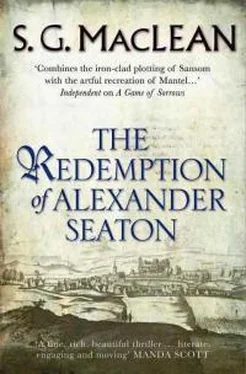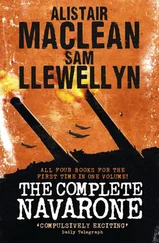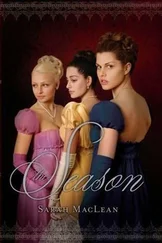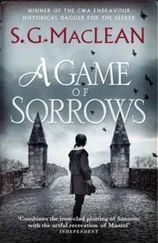‘This is God’s work, it is God’s work!’ screamed James Cardno. I had not noticed the session clerk until now, but he too was on a platform, at the right hand of the minister, the Reverend Robert Guild. The clerk’s face was alive with the certainty of his moment; all the days he had waited, watched, taken orders, been humiliated, they had all led to this. The fervour of his certainty lent a gleam to his eyes only glimpsed at before.
The provost laughed. ‘God’s work? You’re the Devil’s whore, Cardno. Get down off there before I have you shot.’ The laughter was real, and it was the laughter of derision.
The session clerk stumbled slightly as if the blow had been real. When he righted himself there was a trace of desperation on his countenance and panic in his voice. ‘God is not mocked! Provost or no, you will burn for your blasphemy! She was a witch! Satan has walked and danced these streets. It will be found out! It will be hidden no more!’
Some members of the crowd had given off their own demented medley to follow the exchange between provost and session clerk, and some now took up their cries again, encouraged by Cardno’s maniacal defiance. Others, though, kept a watchful silence, or started to mumble amongst themselves. I watched the minister, and others in the crowd had turned to look at him too. He had stepped back, once, and then again from Cardno, but he could step no further, for he had reached his platform’s edge. He had no option but to face the crowd, and his brother-in-law. The provost now addressed him directly.
‘What say you, minister? It is time to stop this madness. There are whores yet in the town who would satisfy your lusts – you and all your like – without this barbarity. Remember you were once a man of God.’
This was almost too much for the Reverend Guild, but Cardno took it as mother’s milk, waiting for his master to respond in kind. Robert Guild, however, was not the man to answer such a moment. Sweat rolled from his forehead down his fleshy cheeks. His chest heaved with indignation and fury and impotence. Cardno, though, would not allow it. ‘Tell him, minister, tell him what you know: of the sabbaths, the girl Arbuthnott and the provost’s own nephew at the Elf Kirk, of their nakedness, their calling on the dead! Your own nephew, provost! Tell him.’
The crowd had fallen silent now. No voice was raised, and all that could be heard was the relentless burn and crackle of the fire and the corpse at its heart, with the quiet sobbing of Edward Arbuthnott. Eyes moved from the minister to the provost. Walter Watt’s face was contorted in disgust. ‘So this is what you have peddled, this filth. You … you sorry excuse for a man. That I have put up with you for my wife’s sake all these years. You and your perversions. And you lead these poor idiots with you. All to garner yourself a name.’
The minister was shaking his head. ‘No, it is true. It is all true. There are witches abroad in this town. We none of us know which of our neighbours has lain with the Devil, has ridden the besom at his side. This town will pay, we will all pay dear, for this turning from godliness. The storm was the first sign. Beggars and famine and pestilence will be our lot. And invaders,’ he said quietly, but with a sly glance at the provost. ‘The witches must burn!’
I could see, through the thick smoke and above the heads of the townspeople, that the minister had little faith in the words that fell in desperation from his mouth. The provost had at last openly condemned and abandoned him, and there was no retreat so he had to go forward, although he had neither the wit nor the stomach for it. For James Cardno, though, it was enough. He took up the minister’s words and fed them to the crowd, his voice rising higher and higher until at last it was a screech. ‘They have danced with the Devil; they have ridden the besom. Find out the witches; the witches must burn.’
The blood within me turned cold. There was one girl, one body, lashed to the stake and aflame, but Guild and Cardno spoke of witches. They concerned themselves now not with the dead, but with the living. For the witch whose lifeless body burned before them, there were others, living, breathing, in this town, standing beside them, perhaps. Fearful looks moved from neighbour to neighbour. Each man and woman avoided the eye of any other, for to be caught would be to make oneself vulnerable. Vulnerable to the cry of ‘witch!’ Better to cry out than to be the one so called. I kept my own eyes straight ahead of me and stood my ground. Cardno carried some more with him now – not all, but some. There were those who took up the chant once more, and it was more menacing in its deliberateness than all the chaotic screeching of before. I feared that the provost might yet lose this battle. The chant was rising and several in the crowd were becoming more nervous. I looked to Thomas Stewart, the notary, but he was watching Walter Watt. Watt himself, however, was not looking at the crowd any more. He had turned his back three-quarters on them and was staring up the road behind him, the steep slope of Strait Path. I followed the line of his gaze, as had Thomas Stewart, and saw, approaching rapidly on thunderous hooves, a party of unknown riders, at their head Baillie Buchan.
As they approached, all but the baillie’s horse whinnying in panic at the flames, I began to discern that every one of the front riders was clothed from head to toe in deepest black. This meant only one thing to me, and as they drew closer and their faces were caught in the light of moon and fire, I saw that I was right. The brethren who had witnessed and countersigned my own fall were coming in force to attend the culmination of the witch-hunt of Banff, and there rallying them was Baillie William Buchan. They came charging, yelling, shouting, and I feared their horses’ hooves would not stop until they had trampled us all underfoot. It was a wonder the beasts’ necks did not break. And yet they did stop, and out of the snorting of exhausted beasts, their hearts near bursting, and the settling of hooves on the cobbles, grew an expectant silence. It can scarcely have been a matter of seconds, but to me it seemed several long minutes. I waited, as the baillie drew in breath, to hear our doom.
‘Provost, the moderator is here and most of the brethren, as at your command.’ And he slid from his horse, utterly spent.
There was some confusion before I and others understood that the brethren had come not to stoke the flames but to put an end to them. In the momentary commotion the provost ordered that the baillie be carried to Jaffray’s, and then the Moderator of the Presbytery of Fordyce heaved himself up on the scaffold cart beside him. The moderator, a gentle and fair man as I had known him, opened his mouth to speak and his voice was a roar.
‘Douse these flames! Put out that fire, or you will all burn longer and blacker than any witch that ever rode the besom. In the name of the Kirk of Scotland, cut down that girl.’ There was a great deal of movement at all sides of the crowd and I saw now that bucket upon bucket of water had been gathered ready from the nearby wells, and that a chain of men was in place from the laird of Banff’s garden to as near to the market cross as they could get. The provost now ordered the way to be cleared and I, like the others in the circle, began to force pathways in the crowd for the water-bearers. As the first sloshes of water fizzled onto the pyre the moderator took up his roar again. ‘And you, Robert Guild, by whose authority do you sanction this heathen orgy? In whose name, on whose behalf do you act? Slavering wretch! Get down off that podium. You will never preach in this or any other parish of the presbytery again.’ Robert Guild opened his mouth to protest, but what he said I did not hear as he was dragged from his platform and onto the dirt below, without ceremony, by two of the provost’s men. Cardno too was taken and he was hauled to the tolbooth, still noising out his demented accusations.
Читать дальше












